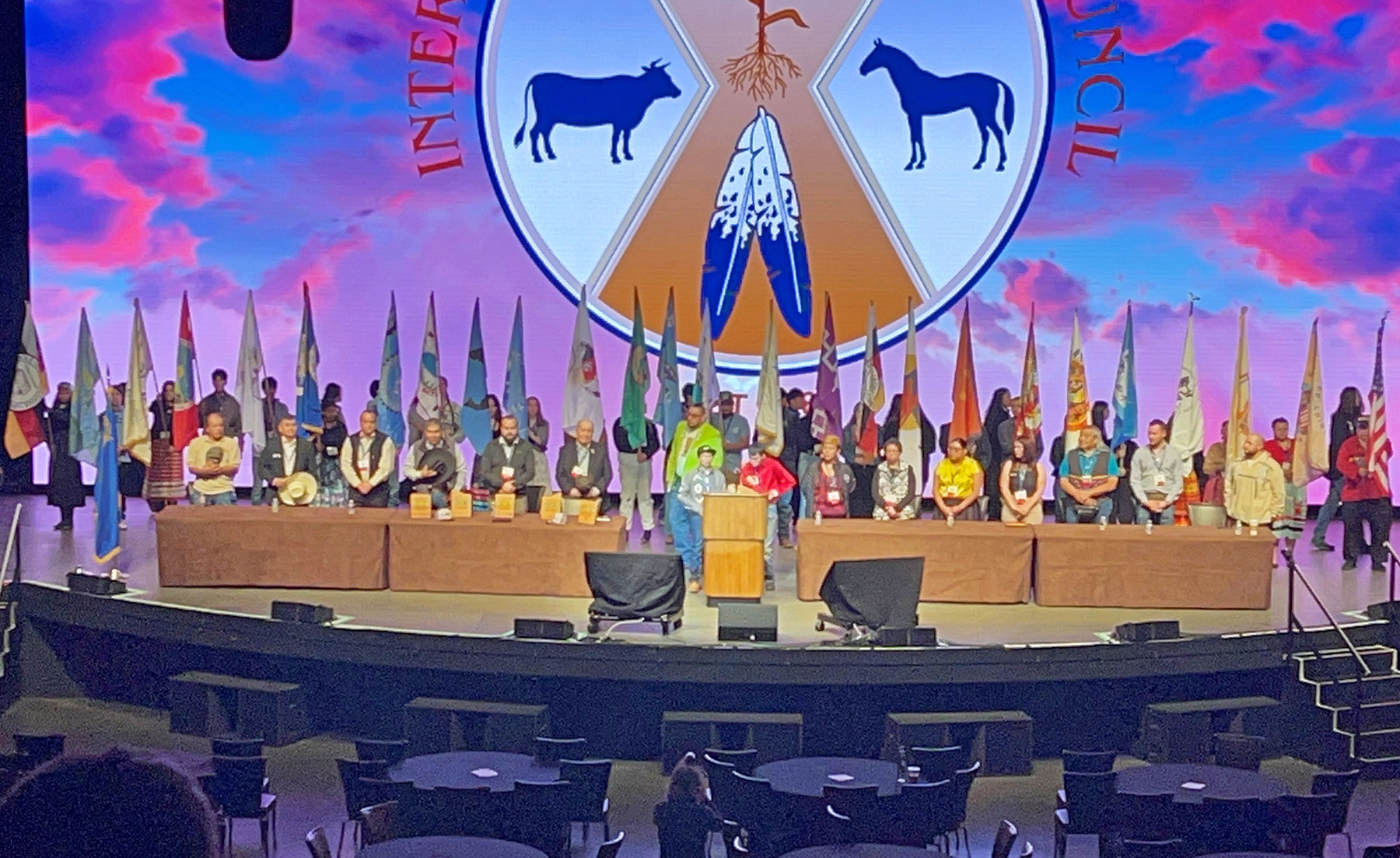Intertribal Agriculture Council tackles issues from various angles
There are many issues that are coming together. Each of these issues are huge in how they will affect Indian Country and individual tribes. Natural resources are being depleted, the human population is growing, and the world is changing. The elephant in the room is overpopulation. The toll that it takes on land and water is creating tension with the public and among Indian tribes.
As a tribal nation, we tackle this from multiple angles. We have our departments and leaders who focus on the Colorado River and the intensifying fight that is escalating every month between people who want more and more water. We have trespassing and land disputes over allotments and assignments from residents in the area. We have land that belongs to people who do not have the means to put it to use either financially or due to the complexity of multiple beneficiaries assigned to any given assignment or allotment.
That last issue was a strong point that I brought up during the Intertribal Agriculture Council (IAC) conference. It was met with echoes of similar frustration from other tribes. The public and private citizens do not understand how our trust land, fee land, assignments, and allotments work. They see land that is not being used on the reservation and assumptions are made.
Some land is tied up very heavily among many beneficiaries that multiply over each generation. A person passes away and maybe that land is passed down to several children and grandchildren. The problem is that there are so many people entitled to the use of the land, but there is no specific detail of the plan on how it stays in production. Because the ownership or assignment of that property is divided (fractioned) so heavily, it makes it extremely difficult for any one given person to utilize the land for agriculture, let alone make a business from it.
Another issue that was brought up from this conference is a call for the Bureau of Indian Affairs to really look at their staffing across the country. For months, Indian tribes have been listening to how hard it is for the government to staff the Bureau of Indian Affairs (BIA). Tribal leaders at this conference agreed that there has not been a sense of urgency for area offices and reservation offices to staff up. I remember growing up, I was working in the summers while going to high school and the Tribe was maybe paying seven to eight dollars for laborers. I took a job with the BIA in the Roads department and at that time, it paid somewhere around $11.50. This was a significant difference, and it showed the commitment of the U.S. Government to fill and reward their employees. I’m not sure what the pay looks like now, but sentiments explained by different leaders illustrated a relaxed approach to hiring and retaining BIA employees. It makes it difficult to talk about the federal Indian trust responsibility and the services to the reservations when so many tribes are all saying that it’s hard to get anyone to simply pick up a phone or to handle issues in a reasonable amount of time.
There were many more important issues brought up during this conference and many tribes are networking to handle these among ourselves and with the support of the Intertribal Agriculture Council.
The last point that I want to highlight in this article is the inclusion of our Southern Ute Tribal youth. There is an Intertribal Agriculture Council youth conference that runs concurrently with the IAC annual conference. This being my first year, I will be looking into getting some of the various ways I think our can youth can get involved. The young folks also carried tribal flags into the opening ceremonies, and it was a wonderful sight. I will also be getting our Southern Ute flag onto that stage next year. There is an essay contest, and the finalists are invited to present their essays in front of all the tribes during the first day of the conference. I am working with our regional representative to create a list of executables and opportunities for our Southern Ute youth to become interested and participate in Agriculture as we proceed into 2024 and to participate in next year’s annual IAC conference.

